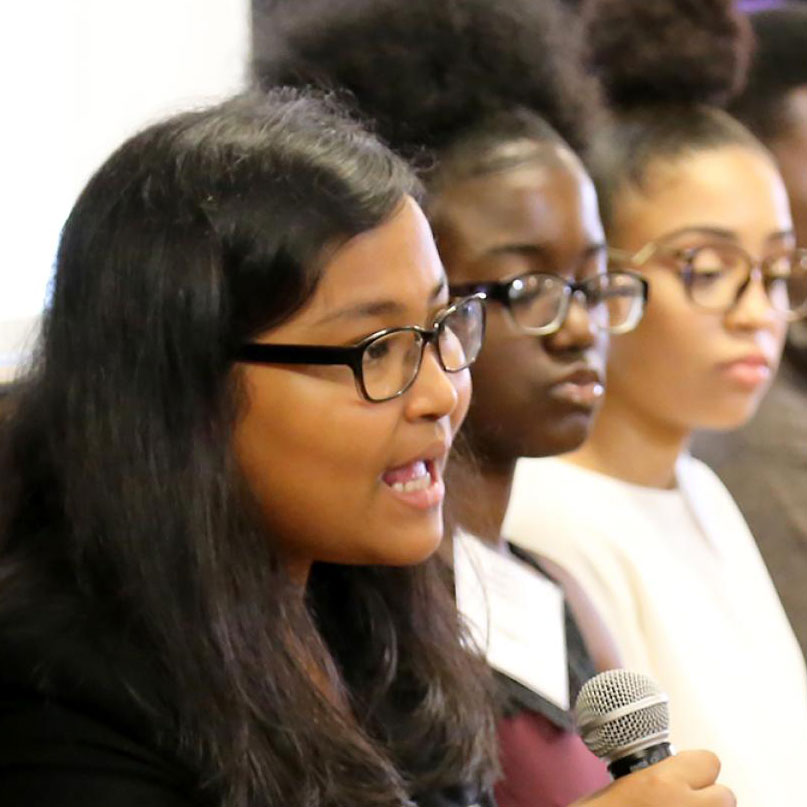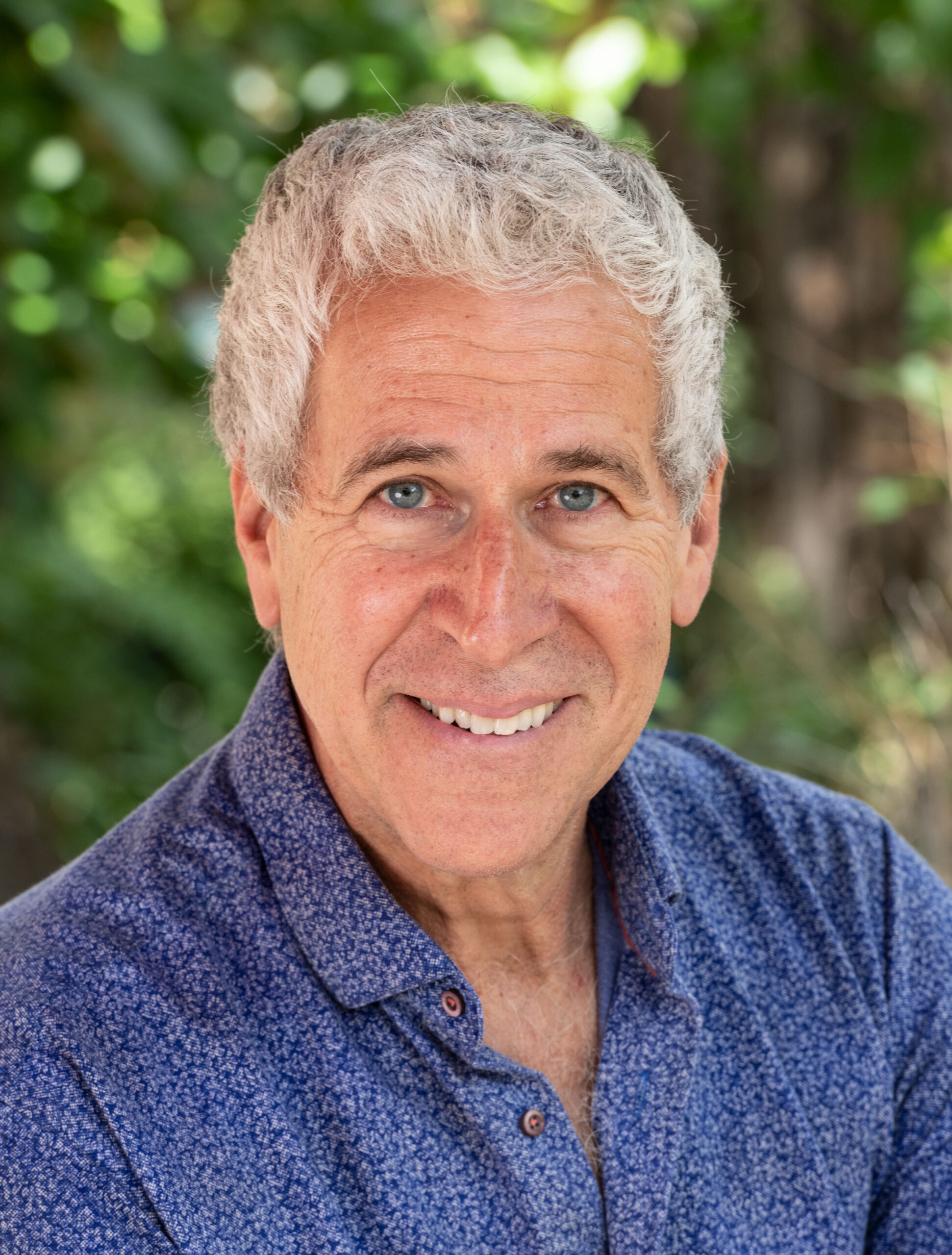Mediation Skills for Everyday Life
An Ubuntuworks Mini-course
A completely FREE four-part course curated by employment attorney and mediator, Eric Sirotkin, Founder of The Ubuntuworks Project and author of Surviving and Thriving at Work, and Witness. Watch the intro video, above.
How to convert any conflict
into an opportunity for growth.
The goal of building a mediation mindset is to optimize our health and wellbeing, develop good problem solving skills, rebuild our communities, and strengthen our inner being.
As humans we often feel a need to be right, but lack the communication skills to resolve an issue cooperatively. The challenge in a mediation as well as in life is to overcome assumptions, one-sided conclusions, and selective data.
Everyone wants to move from negative relationships to constructive engagement. Mediators are trained in human life skills such as being an effective listener, confronting conflict and helping others to refocus on mutually beneficial outcomes.
Whether you are being called upon to help two friends, family members, or neighbors resolve a dispute, or you are facing a conflict in your own life or work, ubuntu-based mediation skills can help build a more connected, peaceful, and thriving community.
Join me in this Mini-course as we explore the key concepts of mediation and how they can take you from focusing on the problem to building durable solutions.
Today's mini-course in four parts:
1
Part 1: Identifying patterns in a conflict
Recognizing patterns in a conflict is an ubuntu-based skill that will help us find a more connected way to listen, problem solve, and find common ground.
2
Part 2: Shifting a conflict toward resolution
Without negating what happened in the past, mediators look toward the future to begin a pathway toward reconciliation.
3
Part 3: Creating dialogue
If you want to open someone up to talking, there are ways you can practice doing just that. Empathy fosters connection and promotes a more understanding conversation.
4
Part 4: Reflecting on our response to conflict
Resiliency plays a crucial role, enabling individuals to navigate conflicts with adaptability and strength, fostering personal growth in the process.
It's all or nothing. My way or the highway. These are examples of entrenched attitudes that we all have to confront. Recognizing patterns in a conflict is an ubuntu-based skill that will help us find a more connected way to listen, problem solve, and find common ground.
Click on the links above to watch our introduction video, listen to a Podcast on “The Science of Productive Conflict” and read “Dispute Resolution and Mediation” from Eric Sirotkin's book, Labor & Employment in New Mexico. Once you integrate these patterns, you can move on to how to create a dialogue with people in conflict.
Part 2: Shifting a conflict toward resolution
In my mediation practice, I use valuable communication tools first introduced in my 1994 book, Labor and Employment in New Mexico: A Desktop Guide to Employment Law.
The goal is to move From and To:

Too often we live in the left column stuck in the past, making subtle or loud attacks on each other and pointing the finger of blame and shame. Even in our conversation with others, if we remember to use these mediation skills on the right, we shift conflicts and build relationship rather than tear others down.
Below are two in-depth recent articles on how to find the common ground necessary to resolve conflict. Click on the links to read excerpts from our Ubuntuworks Resource Hub.
South Africa: Peacemaking and Changemaking Approaches for Social Change by Eric Sirotkin
My greatest lesson in alternative dispute resolution came to me during the Truth and Reconciliation hearings in South Africa where I helped coordinate the International Monitoring Project of the TRC. The statute creating the TRC said “There shall not be victims or perpetrators; there shall be ubuntu.” We are in essence all in the same soup together. Click here to read the article.
Finding Common Grounds for Conflict Resolution through Value Analysis of Stakeholders by Carolina Boix-Fayos
How does a large group of diverse participants make decisions about a coastal lagoon development/protection? In this 2023 study off the coast of Spain, a group of researchers looked at potential solutions for the socio-ecological crisis of the Mar Menor coastal lagoon watershed. Read the study here.
Part 3: Creating dialogue
If you want to open someone up to talking, there are ways you can practice doing just that. Not interrupting someone who is talking with your own story on the same topic is not always easy. Listen actively in order to understand others' perspectives, respond thoughtfully to their emotions, and speak in a way that encourages people to share things. By acknowledging and validating feelings, you create a space for open and respectful dialogue. Remember, empathy fosters connection and promotes a more understanding conversation.
Below are three organizations from the Ubuntuworks Resource Hub that make creating a dialogue an important part of their skill set.

Building local skills for peace and promoting mediation worldwide
Program Implementation and Capacity Building
Conflict happens at every level of society and every corner of the world, which means that peacebuilding must involve people everywhere. Organizations like Mediators Beyond Borders International is just one example of how, together, we can address the critical need for peace. Read more.

Advancing equity and cultivating lasting forms of safety
Recipient of a gift from philanthropist MacKenzie Scott’s Yield Giving fund
The Center’s work touches all stages of the justice system, from arrest through reintegration into the community and seeks to reduce the need for justice system involvement in the first place. Through problem-solving courts, community involvement, and training, their expertise is “fostering conversations among people who don’t often see eye to eye.” Read more here.

United States Institute of Peace
Making Peace Possible
Building local capacities to manage conflict peacefully
A national, nonpartisan, independent institute, founded by Congress and dedicated to the proposition that a world without violent conflict is possible, practical and essential for U.S. and global security. In conflict zones abroad, the Institute works with local partners to prevent, mitigate, and resolve violent conflict through dialogue, research, policy, training, analysis and direct action. Click for more.
BE WELL
Part 4: Reflecting on our response to conflict
In the face of conflict, we often respond differently based on our own emotional coping mechanisms. Anger may manifest as a reactive response, fueling confrontation and expressing dissatisfaction. Some people perceive themselves as victims, seeking empathy and understanding. Resiliency plays a crucial role, enabling individuals to navigate conflicts with adaptability and strength, fostering personal growth in the process. Recognizing these concepts and practicing in different situations allows for a nuanced understanding of how people navigate and cope with conflicts in various ways.
Below are three tips you can use to gauge your own response.
Responding to an angry person.
An angry person can make you feel defensive or angry in your own right. When someone is upset or angry, respond with empathy, attention, and respect. This might not be your natural response, but it can move the other person into a new way of responding so you can focus on the issue at hand.
Find compassion in the situation.
Remember we are innately compassionate. Compassion is a natural capacity to feel connection or concern for another human. If you are having trouble finding where compassion lives in the situation, try some mediation exercises before your next meeting. Opening up your mind can help open up your heart.
When you get stuck, refocus.
When you reach an impasse, refocus on your shared goals and mutually beneficial outcomes. Endeavor to remain positive even in the midst of conflict.

Congratulations! You've finished the Ubuntuworks mini-course on Mediation!
In Part 1 you learned an important ubuntu-based skill with a podcast on productive conflict and articles that talk about active listening and finding common ground.
In Part 2 we shared recent studies on finding common ground and how to shift a conflict toward resolution.
Part 3 introduced you to ways to open up dialogue by acknowledging and validating feelings and creating a welcoming place to talk through some of our organizations in the Ubuntuworks Resource Hub.
And Part 4 gave you three tips on how to respond in a conflict situation.
We hope you have learned some important skills that can help you develop empathy, build supportive relationships, and become lighter and more playful in your interactions with others.
Explore more in Surviving and Thriving at Work: What Every Employee Needs to Know But is Afraid to Ask by Eric Sirotkin.
Be Inspired.
Stay up-to-date on new ubuntu connections around the world.
Inspiring stories that make us part of real systemic change.
Listen Deeply. Respect Others. Find Common Ground.
About Your Instructor,
Eric Sirotkin, Esq.
Eric Sirotkin has served as a Professor of Labor and Employment Law at the University of New Mexico School of Law. Founder of the Ubuntuworks Project, Eric mixes his experience as a lawyer, film producer, author, and peacemaker, to contribute to the movement from the age of separation toward the era of ubuntu. He helps people and countries navigate their conflicts in a way that enhances health and wellbeing. He is an active trial lawyer in Santa Fe, New Mexico, and lectures to hundreds of lawyers and law students each year. Questions? Email Eric here.

• THE UBUNTUWORKS SCHOOL •
Build skill sets for a more connected world.
Infusing ubuntu-based principles into our schools, workplaces, corporations, and the practice of law. Learn more at the Ubuntuworks School.
Answers to your questions
Visit the Ubuntuworks Project to learn about ubuntu and its applicability to education, workplaces, community development, conflict resolution and more.
You can purchase Eric's book, Witness: A Lawyer's Journey from Litigation to Liberation at Amazon, or at Itasca Books.
Purchase your digital or paperback copy of Surviving and Thriving at Work: What Every Employee Needs to Know But is Afraid to Ask at Amazon or Itasca Books.
You can reach Eric Sirotkin HERE. While he can’t give legal advice from an email, he does offer comprehensive consultations on protecting yourself in your workplace or evaluating your claim for mediation or litigation. Visit him at www.ericsirotkin.com.
Yes. Eric is available to work with your employees or organization to help build stronger communication and productivity. Find him at EricSirotkin.com.
Explore the Ubuntuworks World Wide Web of organizations here.
Sign up here for our newsletter that aims to inspire you every few weeks with key projects and principles related to ubuntu.